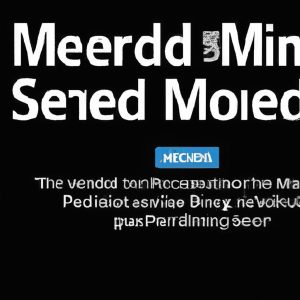Inheriting a home can be both a blessing and a burden, especially when the property comes with a reverse mortgage. As more older homeowners turn to reverse mortgages to supplement their retirement income, the question of whether it’s possible to inherit a house with a reverse mortgage becomes increasingly relevant. Let’s delve into the complexities of this issue and explore the options available to those faced with such a property.
Understanding the Basics of Inheriting a House with a Reverse Mortgage
When it comes to reverse mortgages, one crucial question is what happens to the property once the homeowner passes away. Inheriting a house with a reverse mortgage is indeed possible, but certain steps need to be taken. Here are some basic factors to keep in mind:
Repayment of the loan: The balance of the reverse mortgage loan must be repaid in full once the homeowner passes away. This is typically done by selling the house and using the proceeds to pay off the loan.
Options for the heirs: Heirs have the option to keep the property by paying off the reverse mortgage loan or by refinancing the loan into a traditional mortgage. If the heirs are unable to repay the loan, the lender may choose to sell the property to recoup the loan amount.
Implications of Inheriting a House with a Reverse Mortgage
Inheriting a house with a reverse mortgage comes with several important implications to consider. For instance, the loan balance on the reverse mortgage will need to be paid off in order to keep the property, which can be a substantial amount of money depending on the terms of the loan and the current value of the home. Additionally, the heirs may have the option to sell the property to pay off the reverse mortgage balance, which can be a good solution if they are unable to afford the loan payments or if they prefer not to keep the property for other reasons.
It’s also crucial to note that the heirs must act quickly to determine the best course of action regarding the inherited house. Delays in decision-making can lead to penalties and additional fees, emphasizing the importance of carefully considering all options and making a prompt decision.
Options and Considerations for Handling an Inherited House with a Reverse Mortgage
When inheriting a house with a reverse mortgage, there are several options and considerations to keep in mind. These include paying off the loan balance to keep the house, selling the house to repay the reverse mortgage, opting for Deed in Lieu of Foreclosure, or renting out the property. It’s essential to evaluate the financial implications of each option, consult with a financial advisor or real estate professional, and understand the timeline and legal requirements involved in each option.
Seeking Professional Guidance for Dealing with an Inherited House Subject to a Reverse Mortgage
Professional guidance is essential when dealing with an inherited house subject to a reverse mortgage. The complexity of inheriting a property with a reverse mortgage and potential financial implications call for expert advice in estate planning, real estate law, and financial advising. Seeking assistance can help explore the terms and conditions of the existing reverse mortgage, determine whether there’s an option to keep, sell, or refinance the property, assess potential tax implications and estate planning considerations, and strategize for managing the property to maximize its value.
Concluding Remarks
In conclusion, inheriting a house with a reverse mortgage presents unique challenges and considerations for potential heirs. It’s crucial to understand the terms of the reverse mortgage and work closely with a financial advisor to determine the best course of action. By taking the time to research and plan ahead, navigating this complex situation with confidence can ensure the smooth transfer of assets. Remember, knowledge is power when it comes to navigating the world of reverse mortgages and inheritance.

Inheriting a House with a Reverse Mortgage: What You Need to Know
When a loved one passes away, there are many financial and legal matters to attend to. If you have inherited a house with a reverse mortgage, it can add an extra layer of complexity to the situation. Understanding how reverse mortgages work and what your options are when inheriting a house with a reverse mortgage is crucial to making informed decisions.
How Does a Reverse Mortgage Work?
A reverse mortgage is a loan that allows homeowners aged 62 and older to access a portion of their home’s equity while still living in the home. The loan is typically repaid when the homeowner moves out of the home, sells the property, or passes away. If the homeowner passes away, their heirs inherit the property with the reverse mortgage attached.
What Happens When You Inherit a House with a Reverse Mortgage?
When you inherit a house with a reverse mortgage, there are several key factors to consider:
- Loan Repayment: As the heir, you have several options for repaying the reverse mortgage loan. You can pay off the loan balance, sell the house to repay the loan, or walk away from the property.
- Selling the Property: If you choose to sell the property, you will need to work with the lender to determine the outstanding loan balance and any necessary steps to facilitate the sale.
- Home Equity: You may be able to keep the property by paying off the loan balance using other funds or refinancing the loan in your name.
Benefits and Practical Tips
While inheriting a house with a reverse mortgage can be a complex process, there are some benefits and practical tips to keep in mind:
- Consult with a financial advisor or real estate professional to better understand your options.
- Consider the financial implications of keeping or selling the property.
- Communicate with the lender to discuss the loan and repayment options.
Case Studies
Here are some real-life examples of how individuals have navigated the process of inheriting a house with a reverse mortgage:
| Case Study 1 | Case Study 2 |
|---|---|
| Family decides to sell inherited home to repay reverse mortgage loan. | Heir refinances the loan in their name to keep the property in the family. |
Firsthand Experience
If you have firsthand experience with inheriting a house with a reverse mortgage, we would love to hear your story. Share your insights, challenges, and successes with our community to help others navigate this process.
In conclusion, inheriting a house with a reverse mortgage can be a complex and emotional experience. By understanding how reverse mortgages work, exploring your options, and seeking professional guidance, you can make informed decisions that align with your financial goals and family needs.
The post Inheriting a House with a Reverse Mortgage: What You Need to Know appeared first on lawyer.bet.








